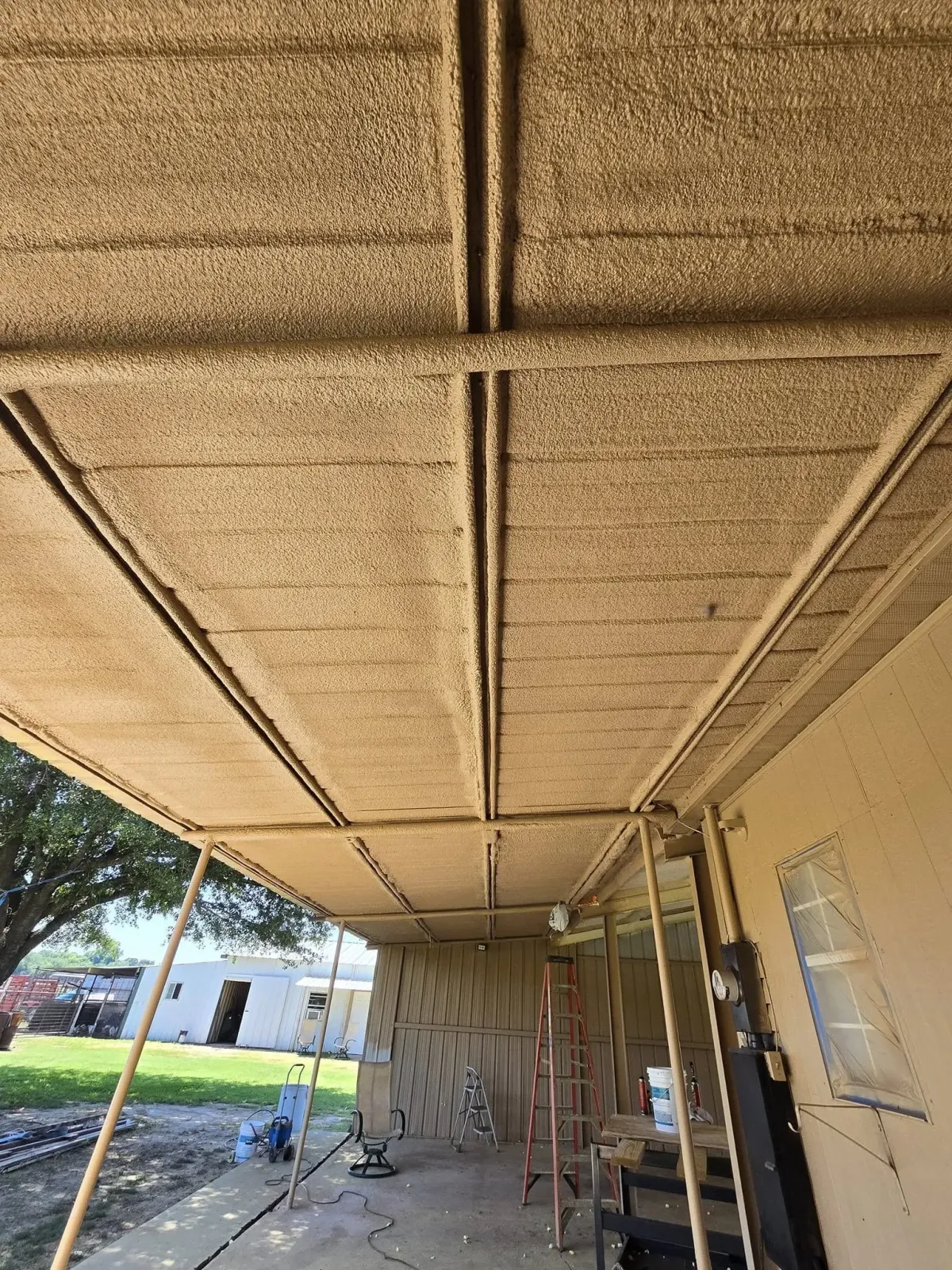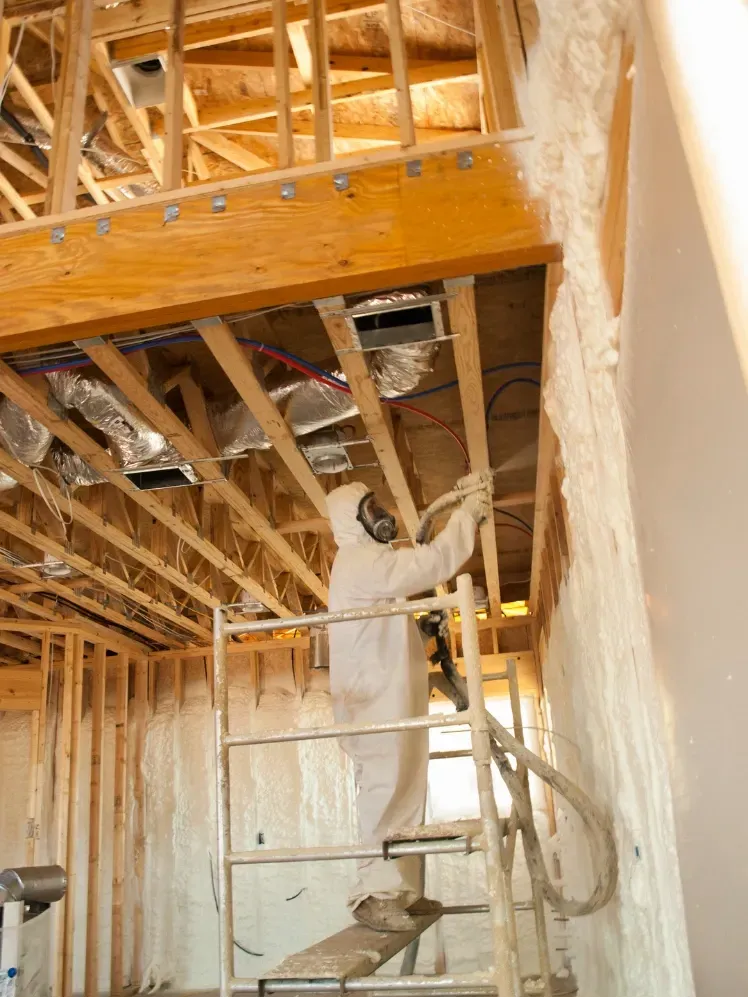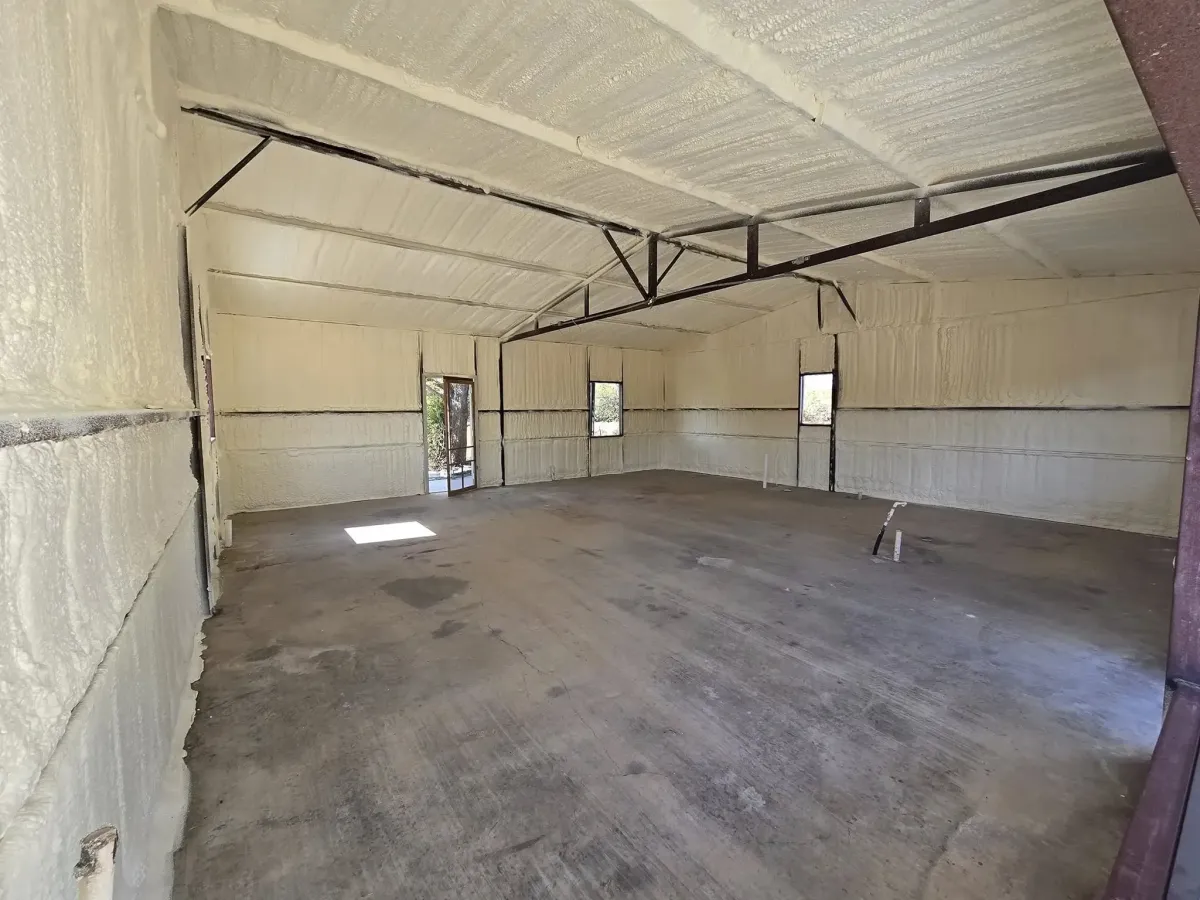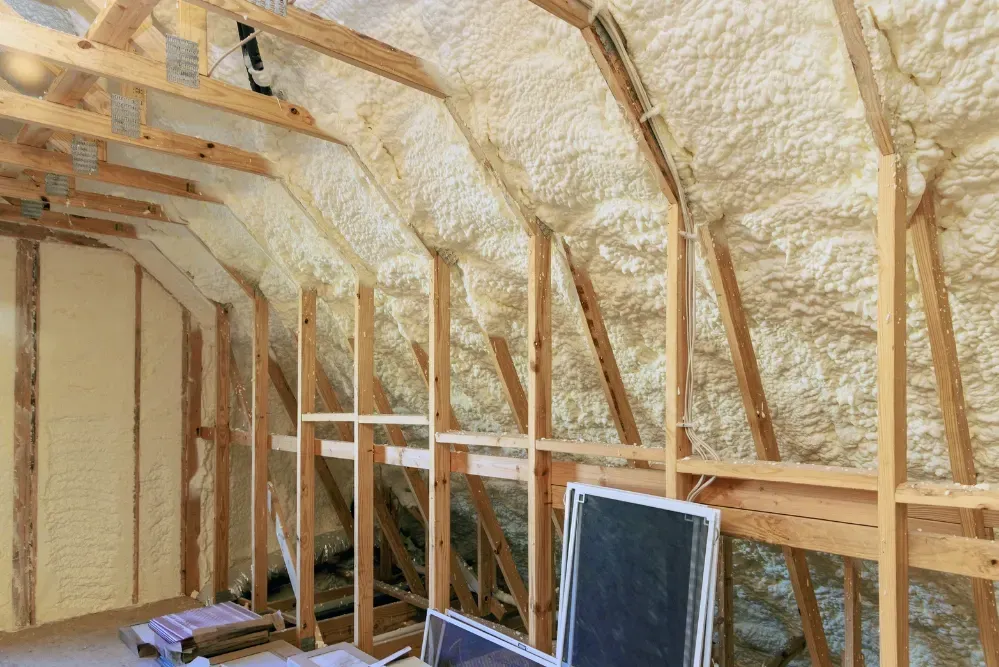Benefits of Cellular Foam Insulation
Cellular foam insulation is rapidly becoming a top choice for homeowners and businesses looking to improve energy efficiency, enhance comfort, and protect their properties. Whether you’re building new or upgrading your existing insulation, cellular foam encompassing both open cell and closed cell spray foam offers a wide range of advantages over traditional insulation materials like fiberglass or cellulose. In this article, we’ll explore the key benefits of cellular foam insulation and explain why it’s a smart investment for properties in Northeast Texas and beyond.

1. Superior Energy Efficiency
Cellular foam insulation excels at reducing heat transfer through walls, attics, and crawl spaces. Its unique cellular structure creates an effective thermal barrier that keeps your home warm in winter and cool in summer. Closed cell foam has a higher R-value per inch (about R-6 to R-7), providing excellent resistance to heat flow, while open cell foam offers good insulation and additional air sealing capabilities. This translates to lower energy consumption and reduced utility bills year round.
2. Excellent Air Sealing Capabilities
Cellular foam insulation excels at reducing heat transfer through walls, attics, and crawl spaces. Its unique cellular structure creates an effective thermal barrier that keeps your home warm in winter and cool in summer. Closed cell foam has a higher R-value per inch (about R-6 to R-7), providing excellent resistance to heat flow, while open cell foam offers good insulation and additional air sealing capabilities. This translates to lower energy consumption and reduced utility bills year round.



3. Moisture and Mold Resistance
Closed-cell spray foam acts as a moisture barrier, preventing water intrusion and reducing humidity inside your walls and attic. This barrier helps prevent mold and mildew growth, which can cause structural damage and health problems. Open cell foam, while more permeable, still reduces moisture infiltration and can help detect leaks early by showing discoloration if water penetrates.
4. Enhanced Structural Strength
Cellular foam insulation excels at reducing heat transfer through walls, attics, and crawl spaces. Its unique cellular structure creates an effective thermal barrier that keeps your home warm in winter and cool in summer. Closed cell foam has a higher R-value per inch (about R-6 to R-7), providing excellent resistance to heat flow, while open cell foam offers good insulation and additional air sealing capabilities. This translates to lower energy consumption and reduced utility bills year round.

5. Improved Indoor Air Quality and Comfort
By sealing out outdoor pollutants, allergens, and drafts, cellular foam insulation helps create a cleaner, healthier indoor environment. Its sound dampening properties also reduce noise pollution, making your home quieter and more peaceful. Open cell foam, in particular, is effective at absorbing sound, ideal for interior walls and ceilings.
6. Long-Lasting Durability
Cellular foam insulation maintains its shape and insulating properties for decades, often 80 to 100 years with minimal settling or degradation. Unlike fiberglass batts that can sag and leave gaps, spray foam stays firmly in place, providing consistent performance over time.



7. Quick and Efficient Installation
Professional spray foam installers can apply cellular foam insulation rapidly, creating an airtight seal in just one or two passes. The lightweight nature of open-cell foam and the dense form of closed-cell foam allow for flexible applications in attics, walls, crawl spaces, and more, often with less mess and cleanup than traditional insulation methods.
8. Potential Tax Credits and Rebates
Many homeowners in Northeast Texas qualify for energy efficiency incentives, including tax credits and rebates when installing spray foam insulation. These financial benefits can help offset the upfront costs, making cellular foam a cost effective upgrade in the long run.
Choosing Between Open-Cell and Closed-Cell Foam
Understanding the differences helps you select the best option for your needs:
Open-Cell Foam: More flexible, sound absorbing, ideal for interior applications; lower R-value but better expansion to fill irregular spaces.
Closed-Cell Foam: Denser, higher R-value per inch, moisture resistant, adds structural strength; best for exterior walls, roof decks, and areas with moisture concerns.
Your insulation contractor can recommend the best choice based on your climate, building type, and budget.
Why Choose 903 Spray Foam for Your Insulation Needs?
At 903 Spray Foam, we specialize in high performance open cell and closed cell spray foam insulation for homeowners and builders in Northeast Texas, including Sumner, Paris, Bonham, Honey Grove, and surrounding areas. Our experienced team ensures expert installation, tailored solutions, and excellent customer service to maximize your home's comfort and energy efficiency.
Frequently Asked Questions
Is spray foam insulation safe?
Yes, when installed by certified professionals, cellular foam insulation is safe and meets all relevant building codes.
How long does cellular foam insulation last?
It typically lasts 80 to 100 years without significant loss of performance.
Can spray foam be installed in any climate?
Yes, cellular foam performs well in a variety of climates, including the hot summers and mild winters typical of Northeast Texas.
Get Started Today
Ready to experience the benefits of cellular foam insulation? Contact 903 Spray Foam at (855) 903-9722 or visit our website to schedule a free consultation and estimate. Let us help you make your home or business more energy-efficient, comfortable, and durable with premium spray foam insulation.
Top Links
Top Links
Business Hours
Monday to Friday 8AM – 5PM
Saturday 8AM - 12PM
Sunday Closed
Copyright © 2025 903 Spray Foam. All rights reserved.
